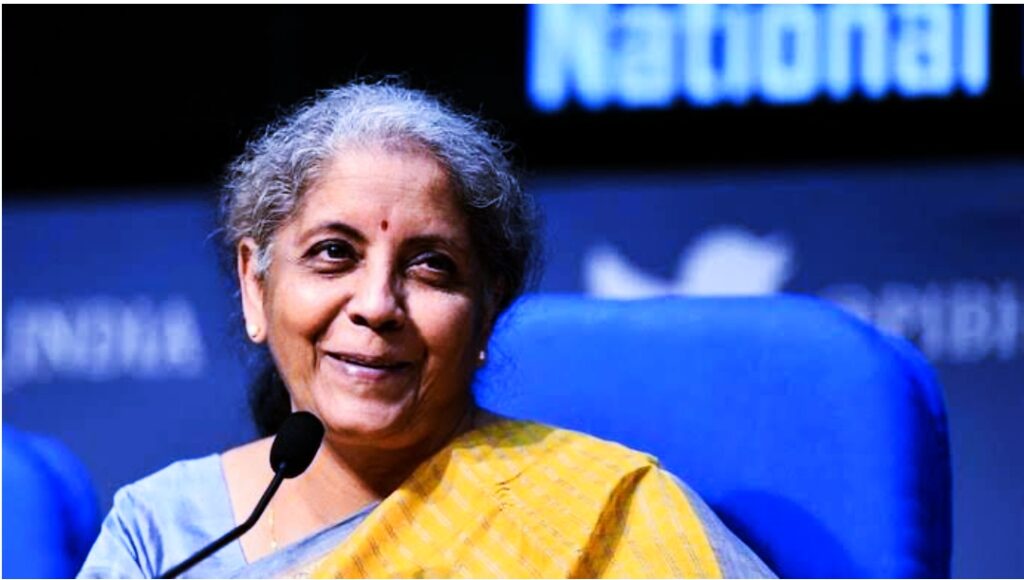Age Limit in the Bill for President & Members of GST Appellate Tribunal (GSTAT) set to be Raised to 70 years & 67 years respectively, as opposed to the previous specifications of 67 years & 65 years. Advocates with 10 years experience in litigation over indirect tax in Tribunals are eligible to become judicial member of GSTAT.
The FM Introduces GST Bill in Lok Sabha: Finance Minister Nirmala Sitharaman made a significant move on Wednesday (13.12.2023) by introducing the Central Goods and Services Tax (Second Amendment) Bill, 2023, in the Lok Sabha. This bill aims to increase the age limit for the president and members of the GST appellate tribunals (GSTAT), providing a new framework for their tenure.
Under this proposed amendment bill, the age limit for the president and members of GSTAT is set to be raised to 70 years and 67 years, respectively, as opposed to the previous specifications of 67 years and 65 years. The bill outlines that an advocate with a decade of ‘substantial experience’ in litigation pertaining to indirect taxes in the Appellate Tribunal would be eligible for appointment as a judicial member of the GSTAT.
Furthermore, the amendment details that the president, along with the judicial and technical members of the GSTAT, will serve a term of four years or until reaching the age of 70 years and 67 years, respectively, whichever comes earlier.
This move by the Finance Minister reflects a strategic adjustment in the age criteria for these key positions, potentially bringing in seasoned professionals with a wealth of experience in handling matters related to indirect taxes.
The government’s previously established rules had set the age limits for the president and members of the Goods and Services Tax Appellate Tribunals (GSTAT) at 67 years and 65 years, respectively. Notably, the GST Council, chaired by Nirmala Sitharaman and consisting of finance ministers from all states and Union Territories, approved a pivotal change in these age criteria in October.
As per the amended bill, the president and members of GSTAT are now eligible for re-appointment for an additional two-year term, provided they adhere to the age limit of 70 and 67, respectively. This development follows the parliamentary approval of amendments to the GST Act in March, which paved the way for the establishment of the Central Goods and Services Tax Appellate Tribunals. GSTAT was subsequently notified on July 31.
In a significant move towards aligning legal provisions, it was observed during the operationalization of the Tribunal that certain aspects of the Central Goods and Services Tax Act, 2017, needed adjustment to align with the Tribunal Reforms Act, 2021. Consequently, the provisions of the Central Goods and Services Tax Act, 2017, are being synchronized with the Tribunal Reforms Act, 2021, to streamline the administrative processes for the prompt operationalization of the Goods and Services Tax Appellate Tribunals.
The newly introduced bill establishes that individuals below the age of 50 are ineligible for the positions of president or member. A recent statement from a finance ministry official indicated that the operationalization of Goods and Services Tax Appellate Tribunals (GSTATs) is anticipated to take approximately 4-5 months. Concurrently, efforts are underway to identify suitable infrastructure, paving the way for the initiation of the member selection process.
Notably, in September, the Finance Ministry took a significant step by notifying 31 benches of the GST Appellate Tribunal (GSTAT), which are slated for establishment across 28 states and 8 Union Territories. The establishment of state-level GSTAT benches is poised to streamline dispute resolution for businesses, offering a faster and more efficient process.
Presently, taxpayers dissatisfied with the decisions of tax authorities face the cumbersome task of moving to their respective High Courts for resolution. This process is often prolonged due to the High Courts’ existing backlog of cases and the absence of a specialized bench for handling GST-related matters.
According to the official notification, Gujarat and Union Territories such as Dadra and Nagar Haveli, and Daman and Diu, are designated to have two benches of the Goods and Services Tax Appellate Tribunal (GSTAT). Meanwhile, Goa and Maharashtra will collectively host three GSTAT benches.
In the southern region, Karnataka and Rajasthan are allocated two benches each, while Uttar Pradesh is set to accommodate three benches.
Moving to the eastern part of the country, West Bengal, Sikkim, Andaman and Nicobar Islands, Tamil Nadu, and Puducherry will jointly house two GSTAT benches each. Kerala and Lakshadweep, on the other hand, will individually have one bench each.
Addressing the north-eastern states, Arunachal Pradesh, Assam, Manipur, Meghalaya, Mizoram, Nagaland, and Tripura are collectively assigned one GSTAT bench. For all other states, a single bench of the GSTAT is designated.
To Read About the Provisions of Suspension of GST Registration under GST CLICK HERE
READ MORE

